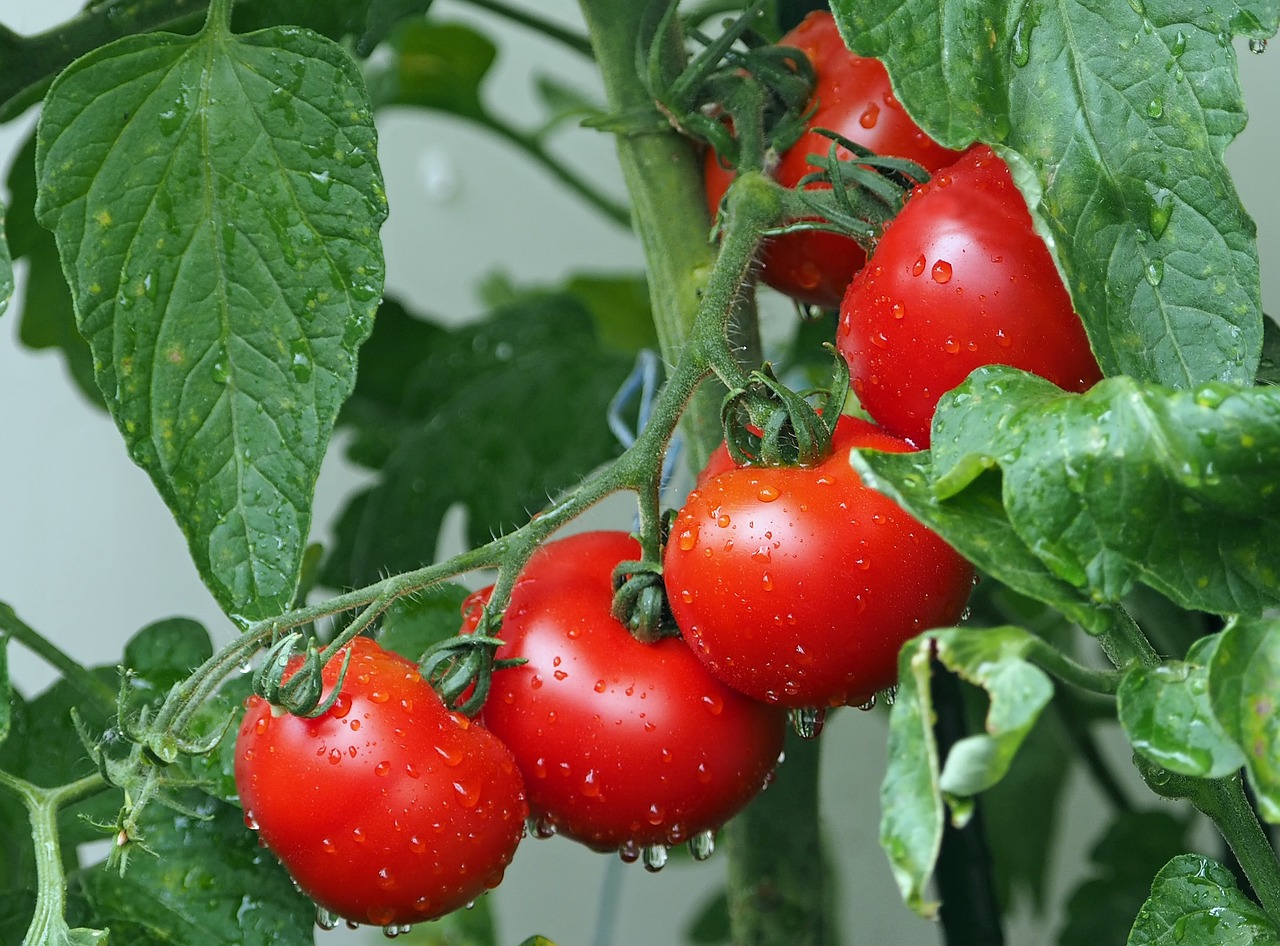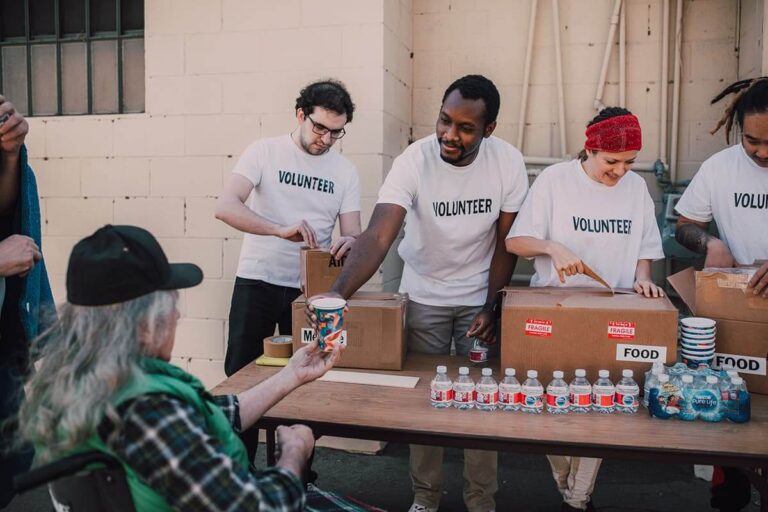20 Sustainable Community Project Ideas for 2023
Want to help your local community but don’t know where to start?
No problem! We’ve compiled a list of 20 project ideas you could start on Green Collab this year.
We’re very interested in getting some new projects on our site. If you would be interested in collaborating with us on your first project, please contact us for more information!
Table of Contents
- Want to help your local community but don’t know where to start?
- 1. Plant a community garden
- 2. Go green fund – Invest in green housing projects
- 3. Install rain gardens/rain barrels
- 4. Setting up a carpooling network
- 5. Hold events for local businesses on eco-friendly practices
- 6. Plant trees
- 7. Develop a community waste-management plan
- 8. Support or start a local recycling programs
- 9. Promote cycling or walking groups
- 10. Create a local growers’ market
- 11. Have community composting days
- 12. Have a green ideas day
- 13. Create a monthly group for locals to discuss issues
- 14. Conduct a biodiversity audit
- 15. Create a litter pick group
- 16. Have a swap and upcycle day
- 17. Arrange nature walks
- 18. Build your own bird feeder day
- 19. Community plant-based potluck
- 20. Pop-up Green Classrooms
- That’s it, folks (for now)
1. Plant a community garden

A community garden is a communal space, typically outdoors, used by local community members to grow and cultivate plants, vegetables, and/or fruits. Community gardens can be used to promote social interaction and foster a sense of community while also providing green space and access to fresh, healthy food.
The RHS provides a comprehensive guide for how to start with this endeavour. You find information on:
- How to start
- What to grow
- What equipment you’ll need
- And other gardening resources
2. Go green fund – Invest in green housing projects

- Stick to posting schedules that work
- Giveaways are a great way to get people into your community
- Look into your insights to see when your audience is active on Instagram
- Always be clear on what your CTA is
A community mutual fund is a collective investment fund typically used by local organisations to support their financial goals and objectives. The money for the fund is contributed by members of a local community and is invested in assets, environmental assets, and other securities. The fund allows local organisations to pool their resources and gain access to investments they may not have access to on their own. The returns from the fund are shared among the contributors. These project ideas can be assisted by government and National lottery grants, such as those provided by local councils. For instance:
- Ealing council climate grants program
- The national lottery community grants fund
- The London Green Fund
- Greater London Greener City Fund
You can contact us if you want some advice or help applying for such funding.
3. Install rain gardens/rain barrels

A rain garden is a landscaping feature designed to capture, store, and slow runoff from hard surfaces such as roofs, driveways, and sidewalks. Rain gardens are typically planted with native, drought-tolerant plants that help absorb and filter rainwater. The water is then slowly released into the ground or nearby water bodies instead of running off into storm drains. Rain gardens also help reduce erosion and flooding, improve water quality, and provide habitat for wildlife.
Some groups also use rain barrels to collect this water and reuse it for watering plants or as an emergency water supply.
Viverra aliquet eget sit amet. At ultrices mi tempus imperdiet nulla. Arcu dui vivamus arcu felis bibendum ut. Arcu cursus euismod quis viverra nibh. Cursus vitae congue mauris rhoncus. Faucibus ornare suspendisse sed nisi lacus sed viverra.John Doe
At vero eos et accusamus et iusto odio dignissimos ducimus qui blanditiis praesentium voluptatum deleniti atque corrupti quos dolores et quas molestias excepturi sint occaecati cupiditate non provident, similique sunt in culpa qui officia deserunt mollitia animi, id est laborum et dolorum fuga.
4. Setting up a carpooling network
Community carpooling is a form of transportation in which a group of people travelling to the same destination share a ride. It is a practical way of saving money, reducing traffic congestion, and helping the environment by reducing carbon emissions. To make carpooling more convenient, you can create a network allowing users to contact other people travelling to their destination. Carpoolers often share the cost of fuel and tolls.
We may be creating a community forum on our sites in the future, so give us a shout if you are interested.
5. Hold events for local businesses on eco-friendly practices

You can reach out to local businesses and inform them about the importance of eco-friendly practices and the benefits they can bring to their organisation. Suggest activities or events you can implement to bring awareness to their employees and customers about the positive impact of eco-friendly practices. It can be part of a local educational campaign or program that you or a group can use to promote eco-friendly practices. This can include activities such as seminars, webinars, workshops, and other interactive events. We recommend that you:
- Invite local environmental experts to speak at the events and explain the importance of eco-friendly practices and how they can benefit the local community.
- Encourage the businesses to brainstorm, collaborate and share ideas on implementing eco-friendly practices in their organisation.
- Provide incentives and rewards to businesses that participate and successfully implement eco-friendly practices in their organisation.
- Use social media and other digital platforms to promote the event and invite local businesses to participate.
- Work with local organisations, government agencies, and other stakeholders to promote the event and raise awareness about eco-friendly practices.
We may be able to provide some sponsorship for such an event. If you are interested, please visit our contact page.
6. Plant trees

Many local councils provide free trees for citizens to plant in their communities. But you can also use GReenCollab to find funding for a tree-planting event. For instance:
- Contact your local arboretum, park, or tree-planting organisation to find out about upcoming events.
- Reach out to local businesses and organisations. Ask if they would be willing to donate trees or provide volunteers to help with the planting.
- Look for grants or other funding sources to help get your tree-planting project off the ground.
- Collaborate with other individuals or organisations in your community who are interested in tree-planting initiatives.
- Find a suitable space for trees to be planted. This could include public parks, school grounds, or private property.
- Research the best types of trees to plant in your area, and make sure to care for your trees after they have been planted properly.
You can find a complete guide for this on the London government website.
7. Develop a community waste-management plan

A community waste plan is a document that outlines strategies and objectives for managing waste in a specific community. It provides an overview of existing waste management programs and outlines steps to reduce, reuse, and recycle waste to minimise the environmental impact of waste production. It also helps to identify gaps in existing waste management, provide recommendations for improving waste reduction, and develop long-term goals for waste reduction. This might include ways for your local area to save money on water and energy consumption. You can begin by:
- Create a survey to identify the current waste management practices of the community, including the amount of waste generated and how it is being disposed of.
- Gather input from a variety of stakeholders in the community to determine the desired outcomes of a waste management plan.
- Develop a comprehensive plan that considers the current waste management practices and the desired outcomes, with clear goals and milestones.
- Develop a system for collecting, sorting and disposing of waste, including waste diversion and recycling initiatives.
- Develop educational materials and programs to raise awareness of the importance of waste management.
- Create incentives for residents and businesses to reduce waste and participate in waste management initiatives.
- Monitor and review the effectiveness of the waste management plan regularly and make adjustments as needed.
By starting this project on GreenCollab, you can find local funding and volunteers to help get the idea off the ground.
8. Support or start a local recycling programs

A community-led recycling program is an initiative that encourages and empowers individuals, businesses, and organisations to work together to reduce waste and promote sustainable living. It typically involves volunteers collecting recyclable materials from various locations, sorting them into categories, and then delivering them to a designated recycling centre. The program can also include educational events and activities to help engage and inform the public about recycling and sustainability.
9. Promote cycling or walking groups

If you’re looking to start a local cycling or walking group in your area, the first step is to spread the word. You can start by posting it as a project on GreenCollab and then grow your audience.
You might do this by :
- Posting flyers in the area, going door to door in the neighbourhoods you plan to ride in or using social media sites such as Facebook and Twitter. Make sure to include the basics in the flyer or post, such as starting point, route, estimated time, and any other pertinent information.
- Establish a few ground rules. This can include safety rules such as wearing helmets, following traffic laws and following the group’s leader. It’s also vital to ensure everyone knows the route and is prepared for the ride.
- You’ll also want to plan a few events to keep the group interested and active. This can include group rides, potlucks, and even group races. This can help to keep everyone motivated and provide an excuse for the group to get together.
- Have a welcoming event to introduce everyone to the group. Make sure to provide refreshments, a few cycling tips, and a map of the area. This will help to set the tone for the group and ensure everyone knows what to expect.
The environmental benefits of a local walking or cycling group are numerous. By encouraging people to leave their cars at home and walk or cycle to their destinations, local walking or cycling groups help reduce harmful emissions and carbon footprints, leading to cleaner air and a healthier environment.
Additionally, these groups help reduce traffic on local roads, leading to less noise pollution and fewer hazardous materials, such as oil and gas, being spilt into the environment. Furthermore, by promoting sustainable transportation methods, local walking or cycling groups help encourage healthier lifestyles and lower overall healthcare costs while conserving energy, reducing the need for large-scale infrastructure projects, and stimulating the local economy.
10. Create a local growers’ market

Locally grown food doesn’t always have to come from farmers (though it can if you live in agricultural areas). Many communities in Britain are the home of proud gardening enthusiasts who grow their own vegetables or fruits. A local growers’ market could facilitate those who have grown some extra produce to share their bounty with the community.
And it doesn’t just have to be raw goods. If you can make any dishes or desserts with your homegrown food, you might also bring this to the market. Food can be sold or brought for free to share with others on a given day or for a monthly event. It can be season-specific, yearly or whenever is convenient for everyone.
11. Have community composting days

Community composting day is an event dedicated to promoting composting and educating the public about the importance of composting. It typically includes demonstrations, workshops, and activities related to composting.
The goal is to promote composting as an effective way to reduce food waste while providing a nutrient-rich soil amendment for gardens and farms. Community composting days often offer educational resources, such as instructions and tips on creating a composting system. They may also feature local composting initiatives, such as drop-off sites and pick-up services.
12. Have a green ideas day

Do you have a great idea that you want to share with others? Or do you know someone who does? A green ideas day brings residents and businesses together to raise awareness about an eco-friendly idea or service. It doesn’t have to be new or innovative; it might just be a chance to show off something you think might benefit others. Conversely, it could be a way to find other investors interested in your idea. Of course, if you host your project on GreenCollb, you could direct donations for your concept here as well! For instance:
- Homemade DIY products
- Eco-Friendly Cleaning Services
- Compostable Packaging Design
- Solar Panel Installation Company
- Organic Food Delivery Service
- Green Building Construction Company
- Recycled Clothing Boutique
- Renewable Energy Consulting Firm
- Sustainable Agriculture Company
- Eco-Tourism Company
- Sustainable Energy Solutions Provider
13. Create a monthly group for locals to discuss issues

Many people can feel isolated from their local community when living in a city or rural area. The UK government reports that in recent years, nearly half of UK adults felt lonely (48%). Monthly groups are an excellent way to feel more engaged and a part of your community. They can also be a crucial way to bring together other to discuss issues affecting the residents. We advise that you could begin by:
1. Identifying a meeting place that is accessible and comfortable for all participants.
2. Creating a meeting schedule and posting it in public places such as libraries, community centres, and other local gathering spots.
3. Reaching out to local environmental organisations and ask them to help promote the discussion group. You could also post an announcement on social media and other online forums to invite locals to join the discussion group.
4. Setting an agenda for each meeting that focuses on current environmental issues.
5. Opening a dialogue and brainstorming.
6. Encouraging participants to bring their own ideas and solutions to the table.
7. Following up with participants after each meeting to keep the discussion going.
14. Conduct a biodiversity audit

A biodiversity audit is an environmental assessment that evaluates the health of biological diversity within a specific area. It includes the study of species diversity, genetic diversity, and habitat diversity and examining the interactions among species and their environment. A biodiversity audit aims to identify any issues that may be impairing the health of the local ecosystem and to provide recommendations for improving the area’s biodiversity.
Whilst these audits are typically conducted by those with an ecology or biology background, that doesn’t always have to be the case. For instance, by eliciting the help of a local research group, online documentation, or scientists, local people can learn how to conduct this audit themselves.
The benefit of conducting a biodiversity audit for an area is that it can provide an accurate assessment of the environment’s health, allowing for informed decisions about the conservation and management of the local ecosystem.
15. Create a litter pick group

In big cities, litter can be a significant and pervasive environmental issue. The UK Marine conservation society noted that in 2022, volunteers picked up “over 141,048 pieces of litter, weighing in almost 4,000kg – roughly the weight of 26 bottlenose dolphins.” This litter, unfortunately, harms local wildlife. The charity Keep Britain Tidy found that plastic rubbish kills more than 1 million sea birds and 100,000 sea mammals, turtles and fish each year.
You can help to neutralise some of this damage by starting a local litter pick group as a GreenCollab project. We suggest:
- Research local litter-picking regulations. Ensure you understand any rules, laws, or regulations applicable to your area.
- Spread the word about your litter pick-up group. Reach out to local businesses and organisations, create online flyers or posts, and let everyone know about your initiative.
- Gather supplies. Ensure you have the equipment to conduct an effective litter pick up, such as bags, gloves, grabbers, and boots. (You can use GreenCollab to get funding for supplies and help)
- Find volunteers. Ask friends, family, and neighbours to help you out. You can also reach out to local schools and community groups to find more volunteers.
- Set a schedule. Decide what days and times you’ll be conducting the clean-up, and make sure your volunteers are aware.
- Develop a plan. Determine what areas you’ll focus on and how you’ll tackle the litter.
- Arrange pick-up and disposal. Contact your local waste management company to arrange pick up and removal of any litter you’ve collected.
16. Have a swap and upcycle day

A swap and upcycle day is an event where people get together to share and exchange used items they no longer need or want. It’s a great way to reduce waste, promote sustainability, and help the environment. Instead of throwing away old clothes, furniture, toys, books, and other items, people can come together to trade them amongst each other. It’s also a great way to find unique items with a unique history at much lower costs than buying something brand new.
There are already some great workshops being done by local groups that you might be able to coordinate with to bring these events to your area:
17. Arrange nature walks

Nature walks can be a great way to learn more about your local area, meet others, and encourage good health practices. Your walks also might be a fantastic opportunity for young people to learn how to identify plants and animals as part of their broader educational development. You can start a group here on GreenCollab to find others who want to join you. You can start by:
- Research local regulations, permits, and any potential safety concerns. Ensure that your program complies with all relevant rules and that all participants are safe.
- Reach out to local nature organisations and other outdoor education and recreation groups to identify potential partners.
- Develop a plan for the nature walk program. Consider the length of the walks, the specific locations, the topics your group will discuss, and any additional elements, such as activities or guest speakers.
- Contact local media outlets to spread the word. Include any relevant information, such as the frequency of walks, the starting location, and the areas you will cover.
- Set up registration for the program and collect contact information for participants.
- Arrange for the walks to take place, including any supplies or materials that you may need. Use GreenCollab to raise funds!
- Lead the nature walks and encourage participants to ask questions and discuss the topics.
- Collect feedback and use it to refine the program for future nature walks.
18. Build your own bird feeder day

Are you adept at woodwork or some other craft that might be useful for the environment? Then why not educate others and join in a local effort to feed our birds? You can use GreenCollab to find interested members, volunteers and funds to start your project today. You can use your skills to do something great and help others pick up new and practical expertise.
Bird feeders are especially crucial here in the UK. According to the Royal Trust for Ornithology (the study of birds), while feeding birds may have some drawbacks, scientists believe that when we follow good bird-feeding practices, we can do our part to support bird populations throughout the nation.
Read about RSPB’s (Royal Society for the Protection of Birds) advice on good bird feeding practices.
19. Community plant-based potluck

A Community Plant-Based Potluck is a gathering of people in a shared space who come together to share and enjoy a meal based on plant-based ingredients. It is an opportunity for people to come together to share their love of plant-based cooking, connect with other community members, and enjoy a nutritious and delicious meal.
Potlucks can be held in various locations, such as parks, community centres, or private homes. In addition to the main dishes, many potlucks also provide snacks and desserts, allowing participants to sample a wide variety of plant-based foods.
You don’t have to be a vegetarian or vegan to participate. The main aim is to encourage reducing the carbon emissions associated with a meat-based diet. By some estimates, just one vegetarian day per week (52 days a year) can save nearly 100 kg of CO2 annually.
It is also an excellent step toward more healthy eating by encouraging a few days where we eat whole and high-fibre foods. The University of Bath suggests “that plant-based products generally require much less agricultural land, need less water and cause less pollution than animal products.”
So, why not give it a go? It is a great way to open discussion in the local community. And community plant-based potlucks are an excellent way to bring people together and connect with the local community.
20. Pop-up Green Classrooms

Pop-up Green Classrooms are temporary learning environments designed to improve children’s educational experience by providing them with an outdoor learning space. These classrooms are typically created with the help of local businesses, organisations, and community members and are intended to provide students with a safe, healthy, and engaging environment.
As a result, students can benefit from increased exposure to nature, hands-on learning opportunities, and the chance to interact with their peers and community members in a relaxed setting. Pop-up Green Classrooms are a great way to inspire students to engage in meaningful learning experiences while allowing them to explore their environment.
We would be happy to help facilitate such days if you had an idea for a local area you wanted to get started on.
That’s it, folks (for now)
Whatever project ideas float your boat, just keep in mind:
- It should help the community
- It should promote environmental and sustainable principles
- If you can, keep it local
For more information on how to set up a project, take a look at our guide here.
Lastly, if you have any other great community-based project ideas you think we should add, let us know in the comments!



